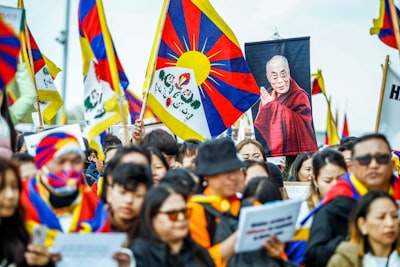Summary
Days before his 90th birthday, the Dalai Lama declared that only his private office holds the legitimate authority to determine his successor, reaffirming the continuity of his spiritual institution. This statement was made via video at the 15th Tibetan Religious Conference in Dharamshala, India, amid close attention from China, which claims jurisdiction over the succession process and aims to control the future of Tibetan Buddhism.
Analysis
The Dalai Lama’s announcement comes at a critical juncture. For decades, China has asserted its right to name the next Dalai Lama, viewing the succession as both a matter of sovereignty and ideological control in Tibet. By publicly affirming the authority of his inner circle to choose his successor, the Dalai Lama signals both defiance against Chinese influence and a commitment to traditional Tibetan Buddhist practices. The statement is also a response to the anxiety within the Tibetan community and the global Buddhist diaspora, who fear a politically-motivated rift or even two rival Dalai Lamas: one recognized by exiled Tibetans and another by Beijing.
The timing—just before a milestone birthday—emphasizes the urgency and gravity of the succession issue, highlighting the fragility and contested nature of religious leadership under conditions of exile, occupation, and external pressure.
Discussion
This episode underscores the enduring importance of religious authority as a source of identity and resistance, not just for Tibetans, but for oppressed minorities everywhere. The Dalai Lama’s insistence on autonomy in succession selection can be read as both a spiritual and political act: seeking to preserve an independent Tibetan identity against the backdrop of China’s assimilation policies. It also raises timeless questions: Who truly has the right to lead a faith community—those appointed by tradition and spiritual criteria, or those installed by the state?
The Dalai Lama’s stance draws parallels to other global struggles over religious leadership: the Vatican’s relations with Chinese Catholics, historical schisms within Islam and Christianity, or even the ongoing debates over religious authority and state interference worldwide. As the spiritual and political dimensions of the Dalai Lama's role blur, the coming succession is likely to become a flashpoint for dialogue, protest, and perhaps further fragmentation.
This development begs reflective questions: Can global public opinion or multilateral organizations influence the process, or will it ultimately be a showdown between exile and empire? What happens to Tibetan Buddhism if rival Dalai Lamas are enthroned? And in a world so often defined by the politics of power, can a spiritual legacy truly secure its independence?
Ultimately, this is not merely a Tibetan issue, but a window into the universal struggle between tradition and power, faith and governance, voice and control. As the Dalai Lama ages, the global community will be watching—not just for a name, but for a principle: Who decides what is sacred, and on whose terms?

Comments
No comments yet. Be the first to comment!